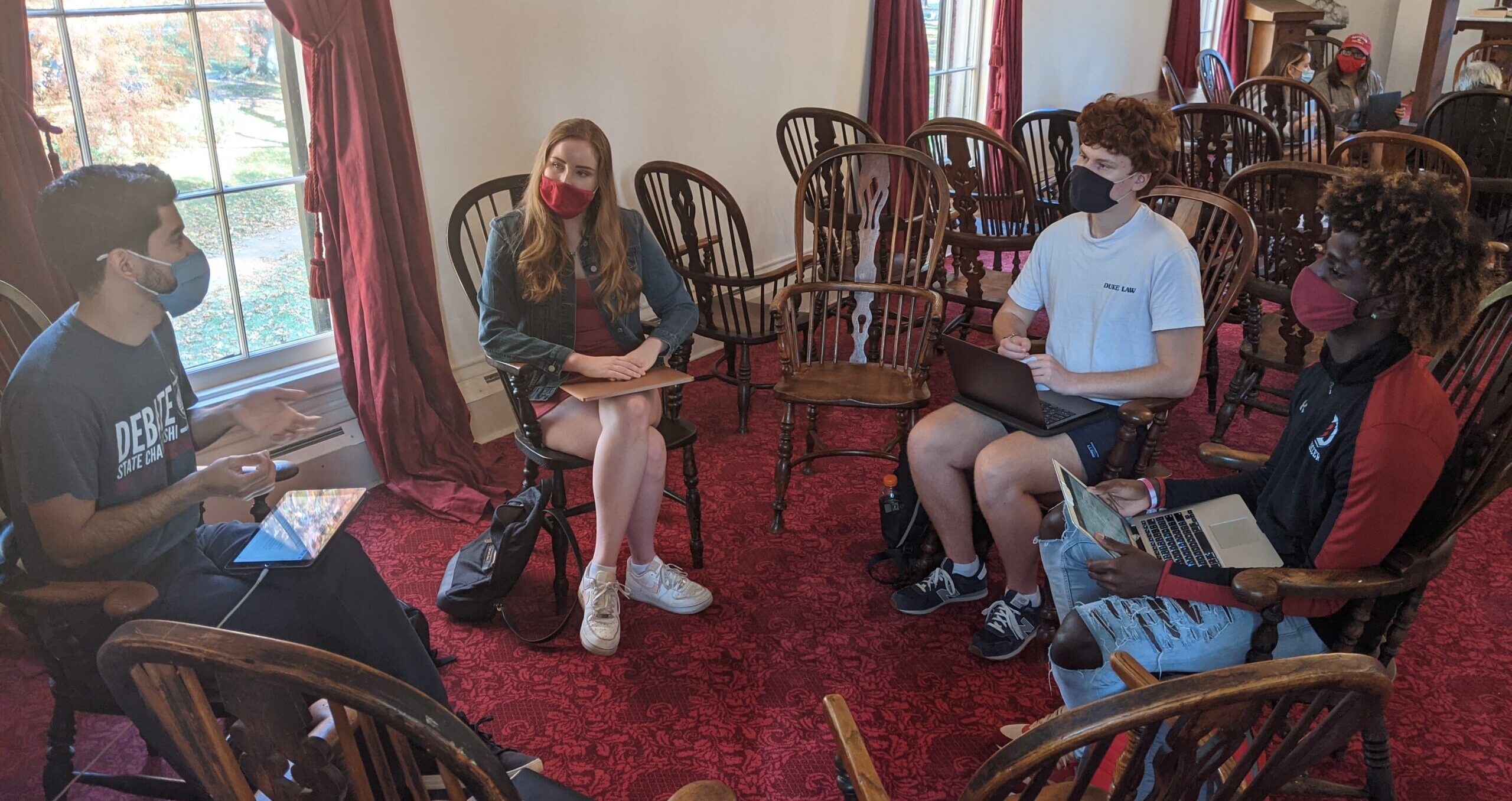
By Miles Charles ’25 (DCI Fellow)
College campuses are often microcosms of society at large, with students from a wide range of backgrounds and experiences coming together in one place. However, these diverse communities are not immune to the challenges of polarization and division that are currently plaguing our society. Whether it’s disagreements over politics, social issues, or campus policies, tensions can run high on college campuses. But there is hope: deliberation can be a powerful tool for bringing together a divided college campus.
Deliberation involves the careful consideration and discussion of issues, with an emphasis on active listening, respectful communication, and a willingness to engage with others in good faith. When applied to the context of a college campus, Davidson College for example, deliberation opens the opportunity to foster a deeper sense of community past simply being a wildcat and promote a culture of constructive dialogue.
One way to incorporate deliberation on a college campus, as DCI has done at Davidson, is through the implementation of deliberative groups and forums. These groups are facilitated and led by trained Davidson Students to better encourage student participation. As a student facilitator, I have seen and experienced firsthand how student led deliberations create a space in which all voices are heard and respected, regardless of political affiliation, background, or personal beliefs.
Another innovative approach is to incorporate deliberation into the curriculum itself. Various colleges and universities have already begun to do so, incorporating courses on topics such as civil discourse, conflict resolution, and intergroup dialogue. Within the Davidson context, deliberation is being incorporated in courses across the curriculum by faculty participants in the DCI’s Deliberative Pedagogy Collaborative. Expanding these efforts will expose students to different perspectives and teach them skills needed to engage in productive class discussions, dialogues, and promote a more inclusive community.
Deliberation can also be effective in addressing specific issues or conflicts on a college campus. For example, as a student, a controversial issue is the limited number of parking spots on campus. By employing the deliberative process, the various stakeholders such as administration, students, employees, visitors, and more can be brought together to engage in constructive dialogue. This can help to identify common ground and find solutions that are acceptable to all parties involved.
In order for deliberation to be effective, it is important to create a culture that values respectful communication and open-mindedness. This can be achieved through workshops, trainings, and other educational initiatives that teach students and staff the skills necessary to engage in productive dialogue. It is also important to ensure that all voices are represented and that everyone feels comfortable participating in the process.
In conclusion, deliberation is a powerful tool for bringing together a divided college campus. By creating spaces for respectful and constructive dialogue, incorporating deliberative approaches into the curriculum, and addressing specific issues through a deliberative process, colleges and universities can foster a more inclusive and welcoming campus community.
*Photo above is from students participating in a deliberation designed and facilitated by students in a course on ethics and policymaking in the fall of 2021. Over a dozen such deliberation-involved courses have been taught by faculty participants in the DCI’s Deliberative Pedagogy (DeeP) Collaborative.
